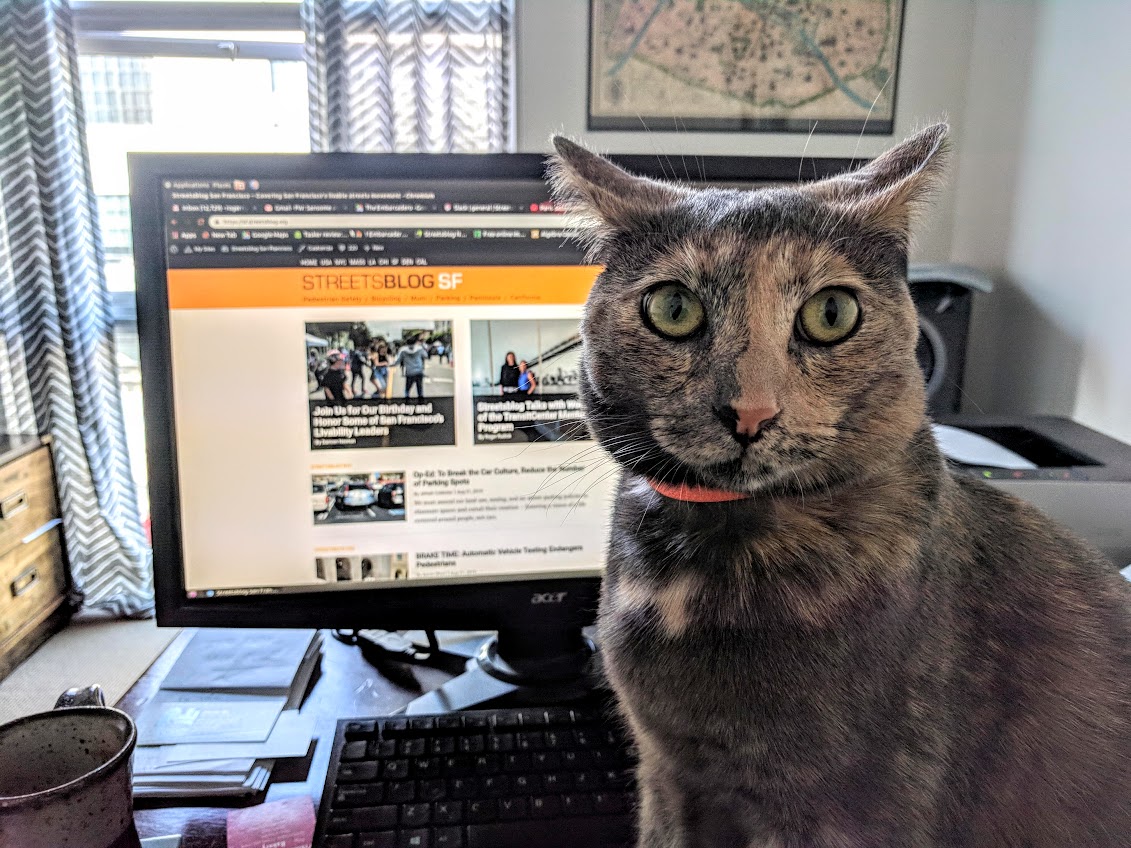The Metropolitan Transportation Commission is adding a new carbon-reduction strategy to its "Plan Bay Area 2050 Final Blueprint" document--a mandate that large companies that currently have the majority of their staff working from home as part of the COVID-19 lockdown continue to do so permanently.
MTC Regional Planning Program Director Matt Maloney, who presented the proposal to the agency's board Wednesday, talked about how the region must invest in dense housing adjacent to robust transit to fight climate change, investing more in "BART, Caltrain, SMART, Valley Link, VTA Light Rail, and Regional Express Bus."
However, he said, in order to reach targets, there's no single solution, and a telecommuting mandate is also necessary to hit the 25 percent reduction goals currently sought.
The updated plan mandates that employers:
Build upon the significant shift to work from home during COVID-19 and mandate that large employers have at least 60 percent of their employees telecommute on any given workday. This requirement would be limited to large office-based employers whose workforce can work remotely... This could enable an increase from the projected telecommute share of 14 percent in the Draft Blueprint to up to as high as 25 percent in the Final Blueprint, recognizing that half of the workforce has a job that must be completed in-person (not eligible for telecommuting).
The MTC plan also recommends investing $10 billion to expand broadband internet to low-income communities, to avoid leaving people out of this new paradigm.
Commissioner Nick Josefowitz, who represents San Francisco on the board, brought up concerns that were echoed by other commissioners and members of the public. He pointed out that people who live in small apartments with family members and roommates won't want to continue working from home. In addition, "Work From Home mandates also penalize downtowns. Our whole city relies on workers coming to downtown San Francisco and preventing them from coming even if they’re taking BART, AC Transit, Muni or bike or walking, is going to do real harm."
Josefowitz and others wanted the mandate amended to target drivers specifically for work-from-home requirements. "I propose we just say 60 percent of workers who don’t use public transportation or walk or bike have to work from home."

Maloney and other MTC staffers explained that the 60 percent is a guideline and such modifications could be added as the rules are refined (MTC would need some kind of accompanying legislation to actually make this a mandate regardless). Oakland Mayor Libby Schaaf supported the rule, and its refinement, adding that given the recent forest fires and other evidence of damage from greenhouse gas emissions it's imperative to get CO2 emissions lowered. However, she agreed with the call to target drivers. "This is an important policy. If it makes people more comfortable to say 60 percent or equivalent mandate ... so companies could get credit for non-car owning employees, I think that is wise."
Nearly all of the 44 speakers from the public either outright opposed the 60 percent mandate or wanted it to focus on reducing car trips. Just "...having people shelter in their homes until the ends of times is not the answer," said speaker and San Mateo resident Jordan Grimes, pointing out that the region stills spends billions on highways and other forms of private car subsidies that could be diverted to transit improvements.
Livable City's Tom Radulovich, in an email to Streetsblog about the mandate, said he likes the idea of giving people the flexibility to work from home overall. "My commute was a short bike ride (15 minutes or so) and my work schedule was already flexible, so I actually miss the office and some in-person work meetings. My co-workers also miss being able to work in the same space. Depending on what you do, your work style, and household circumstances, working at an office with other people at least some of the time may still be preferable."
Ultimately, the commissioners passed the plan with the 60 percent mandate as written. But MTC staff promised to refine the proposal so it won't end up requiring people who already get to work by bike, foot, or transit to work from home. The refined document will be brought back to the MTC commission for final approval in November.






